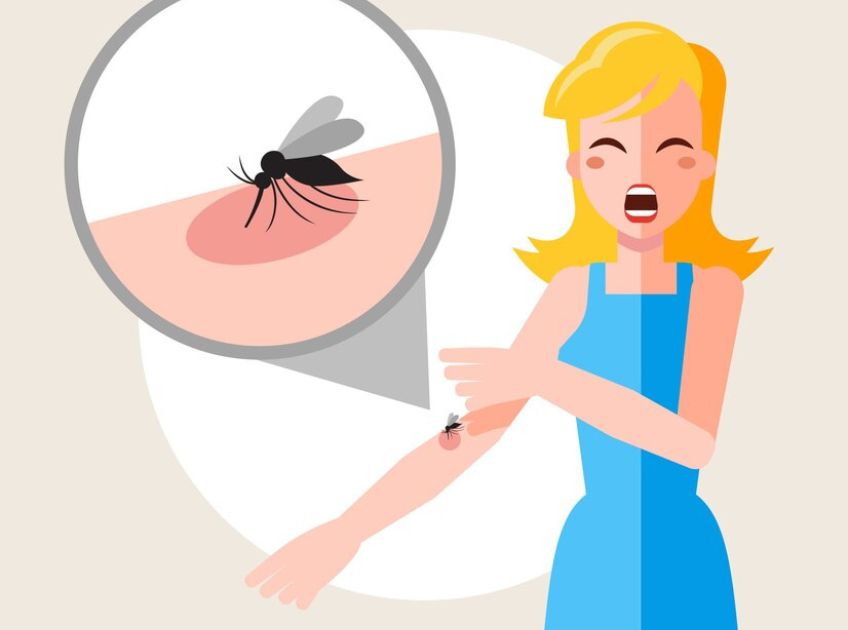
Important: This article is for informational purposes only. Please read our full disclaimer for more details.
Mosquito bites are more than just itchy—they can be incredibly irritating, disrupt sleep, and even lead to skin infections if scratched excessively. While over-the-counter creams help, many natural remedies offer soothing relief with ingredients you likely already have at home. These remedies not only reduce itching and swelling but also support the skin’s healing process. Let’s explore 10 effective, science-backed natural solutions for calming mosquito bites.
Nature’s Itch Relief: 10 Proven Home Remedies
1. Aloe Vera Gel
Aloe vera is a classic skin-soothing agent. Its anti-inflammatory and cooling properties make it excellent for mosquito bite relief. Fresh aloe vera gel reduces redness and itching almost instantly.
Scientific Insight: A 2014 study in the Journal of Ethnopharmacology confirmed that aloe vera contains compounds, such as acemannan, which reduce inflammation and accelerate wound healing (1).
2. Honey
Raw honey has natural antibacterial and anti-inflammatory properties that help relieve itching while preventing infection if you’ve scratched the bite open.
Why it works: According to Evidence-Based Complementary and Alternative Medicine (2013), honey’s high sugar content and enzymatic production of hydrogen peroxide make it a natural antimicrobial dressing (2).
3. Baking Soda Paste
Mix 1 tablespoon of baking soda with water to form a paste. Apply it to the bite for 10 minutes to neutralize pH imbalance and reduce inflammation.
Scientific Support: The alkaline nature of baking soda can counteract the acidic compounds in mosquito saliva, easing skin irritation (3).
4. Tea Tree Oil (Diluted)
Tea tree oil is a powerful essential oil with antiseptic and anti-inflammatory effects. Dilute it with a carrier oil (like coconut oil) before applying to avoid skin irritation.
Study Note: A 2006 study in Clinical Microbiology Reviews cited tea tree oil’s effectiveness in reducing swelling and preventing secondary infection from insect bites (4).
5. Cold Compress
Applying an ice pack or cold cloth to the bite reduces blood flow, which in turn eases itching and swelling.
Expert Insight: Dermatologists recommend cold therapy to calm localized histamine reactions—the cause of bite inflammation.
6. Apple Cider Vinegar
ACV’s natural acidity may help reduce itching and disinfect the skin. Dab a small amount on the bite with a cotton ball.
Why it works: ACV contains acetic acid, known for its antibacterial properties. PubMed Central supports its role in soothing minor skin irritations (5).
7. Basil Leaves
Crushed fresh basil leaves can be applied directly to bites. Basil contains eugenol, a compound known to ease itching and discomfort.
Scientific Fact: A study in Pharmaceutical Biology (2011) found eugenol has potent anti-inflammatory effects, making basil a helpful natural remedy for bug bites (6).
8. Oatmeal Paste
Oatmeal is rich in antioxidants and compounds like avenanthramides that reduce itching and inflammation. Mix with water and apply as a paste or soak in an oatmeal bath.
Research Insight: The Journal of Drugs in Dermatology (2008) supports colloidal oatmeal’s role in relieving itch in inflammatory skin conditions, including bites (7).
9. Witch Hazel
This astringent from the witch hazel shrub tightens the skin and reduces inflammation. It’s great for minimizing swelling and soothing itch.
Study Support: The American Botanical Council reports that witch hazel has proven anti-inflammatory and antimicrobial effects, ideal for insect bites (8).
10. Lemon or Lime Juice (With Caution)
Citrus juice acts as an antimicrobial and can mildly reduce itch, but it must be used with care—only indoors and never before sun exposure.
Caution: Citrus can increase skin sensitivity to sunlight, potentially leading to phytophotodermatitis. Use only when necessary and rinse thoroughly after.
Why These Remedies Work: The Science Behind Mosquito Bite Relief
When a mosquito bites, it injects saliva containing anticoagulants and proteins that trigger your immune system to release histamine. This causes the familiar redness, itching, and swelling.
Natural remedies work by:
- Reducing histamine-related inflammation (e.g., aloe vera, oatmeal, basil)
- Preventing infection from scratching (e.g., honey, tea tree oil, witch hazel)
- Restoring skin pH and barrier function (e.g., baking soda, ACV)
By targeting the root cause—immune response and skin irritation—these remedies provide effective and lasting relief.
Frequently Asked Questions (FAQ’S)
Q1. Can I use multiple remedies together for faster relief?
A. Yes, but apply them in separate sessions. For example, use a cold compress followed by aloe vera. Avoid combining acidic (like vinegar) and basic (like baking soda) treatments together to prevent skin imbalance.
Q2. Are natural remedies safe for kids and sensitive skin?
A. Most are gentle, like oatmeal and aloe vera. However, essential oils and vinegar should be patch tested first, especially on children. Always dilute oils and avoid citrus-based remedies on young skin.
Q3. What should I avoid doing with mosquito bites?
A. Don’t scratch! Scratching increases the risk of infection and scarring. Also, avoid applying raw citrus in the sun, as it can cause burns or hyperpigmentation.
Mosquito bites may be small, but the irritation they bring can be huge. These 10 natural remedies offer effective relief using ingredients you likely have at home. Backed by research and traditional use, they help calm inflammation, reduce itch, and speed up healing—all without harsh chemicals. Next time you’re bitten, reach for nature’s pharmacy—you’ll be itch-free in no time.
You Might Also Like:
- 11 Simple Home Remedies for Mosquito Bites
- 8 Best Essential Oils For Poison Ivy
- The 7 Best Home Remedies for Poison Ivy
- How to use Baking Soda for Poison Oak
- 7 Best Lotion For Insect Bites
- 10 Essential Oils for Mosquito and Bug Bites















